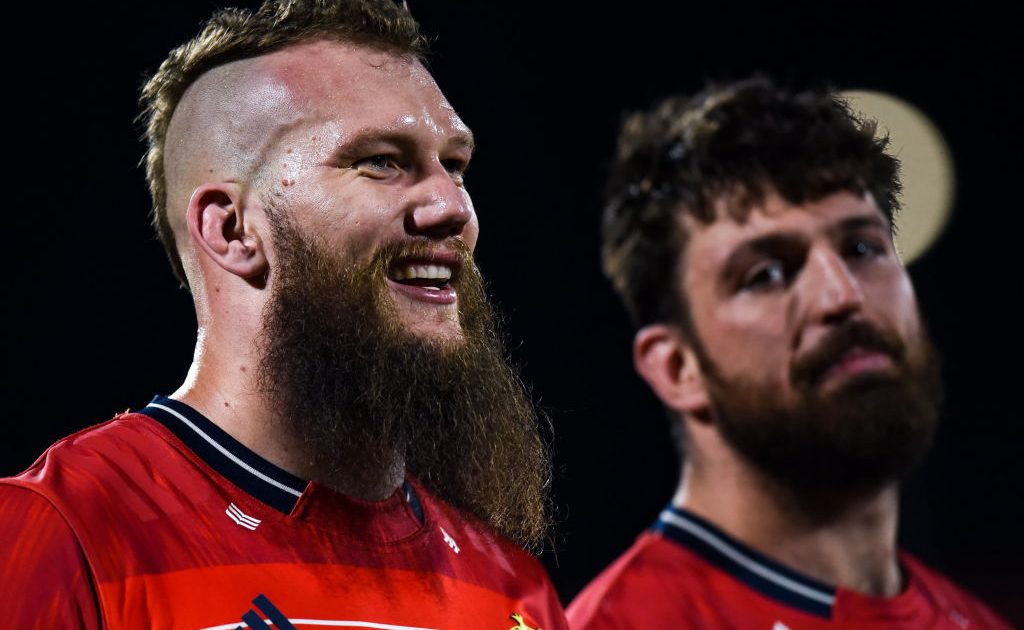Bad-tempered affair sees Munster end Stormers’ 19-game home winning run

Munster ended Stormers’ 19-game winning streak in Cape Town with a 26-24 United Rugby Championship victory at DHL Stadium.
The Irish province also claimed a bonus point with Gavin Coombes’ late try adding to Diarmuid Barron’s first-half brace and a superb effort from wing Shane Daly.
Munster’s win moves them to within five points of fourth-placed Glasgow ahead of their final game away to the Sharks.
The third-placed Stormers complete their regular season at home to Benetton on Friday.
Munster’s fast start was rewarded within two minutes when Barron broke off the back of a maul.
Referee Craig Evans initially said no try but then changed his mind as he noticed Barron had grounded the ball as he blew the whistle.
Jack Crowley added the conversion and there were more problems for Stormers when wing Seabelo Senatla was sent to the sidelines after 22 minutes.
Evans gave Senalta a yellow card for a high tackle on Munster captain Peter O’Mahony after he was asked to review the incident by the Television Match Official.
Munster immediately took advantage of their extra man as Barron surged off a maul again to charge over.
Senatla’s absence, however, stirred Stormers into action and second-row forward Ruben van Heerden freed Frans Malherbe for the prop to claim his first URC try.
The clock was in the red at the end of the first half when parity was restored on the scoreboard.
Ruhan Nel barged over from Dan du Plessis’ pass and Manie Libbok added a simple conversion.
Stormers started the second half as they had ended the first, on top with Libbok’s penalty attempt striking an upright and Suleiman Hartzenberg denied by last-ditch defence.
But Munster kept their line in tact and took the lead after 57 minutes as Mike Haley released Daly and the wing had the strength to shake off Senatla in the corner.
Replacement Ben Healy landed a wonderful touchline kick for a 19-12 lead.
Stormers upped the tempo and skipper Steven Kitshoff profited from a huge forward drive, although Libbok failed to tie the scores as his resulting kick fell wide.
Munster came back again and Coombes sneaked under a pile of bodies to secure a try bonus point.
Healy added the extras to ensure Stormers had to score twice for victory, and their hopes drifted away when Libbok missed a penalty.
Nel’s converted try from the final play ensured Stormers would leave with two bonus points.









































































Munster git away with murder but we'll deserved, they played the ref never hot yellow card for infringements not their problem Stormers was bad to say least